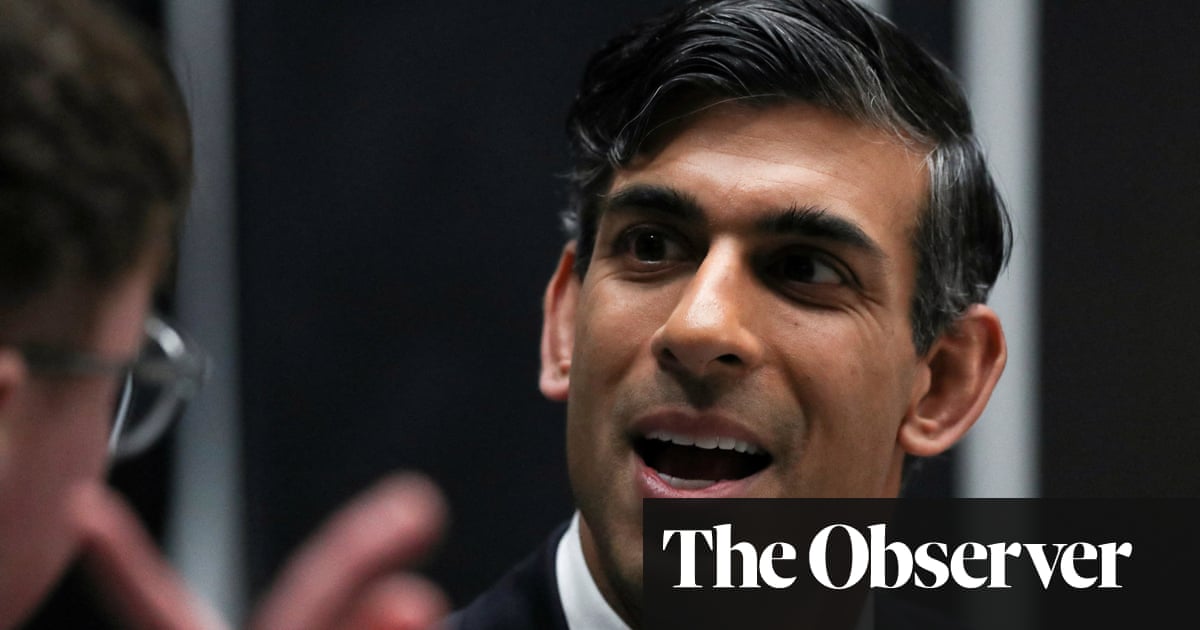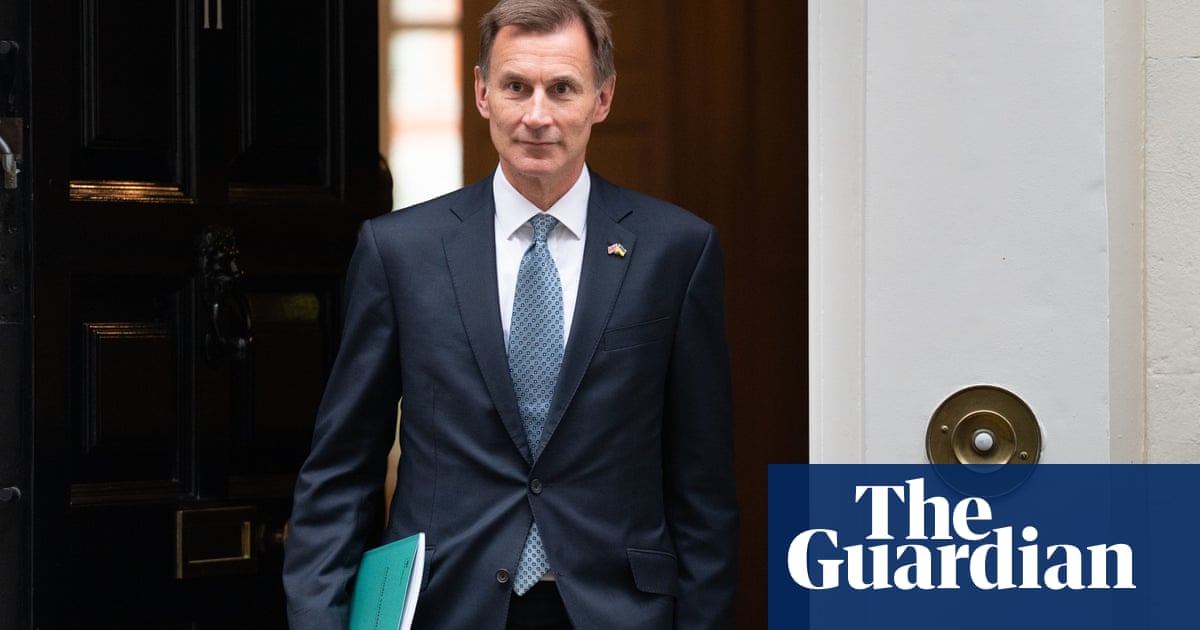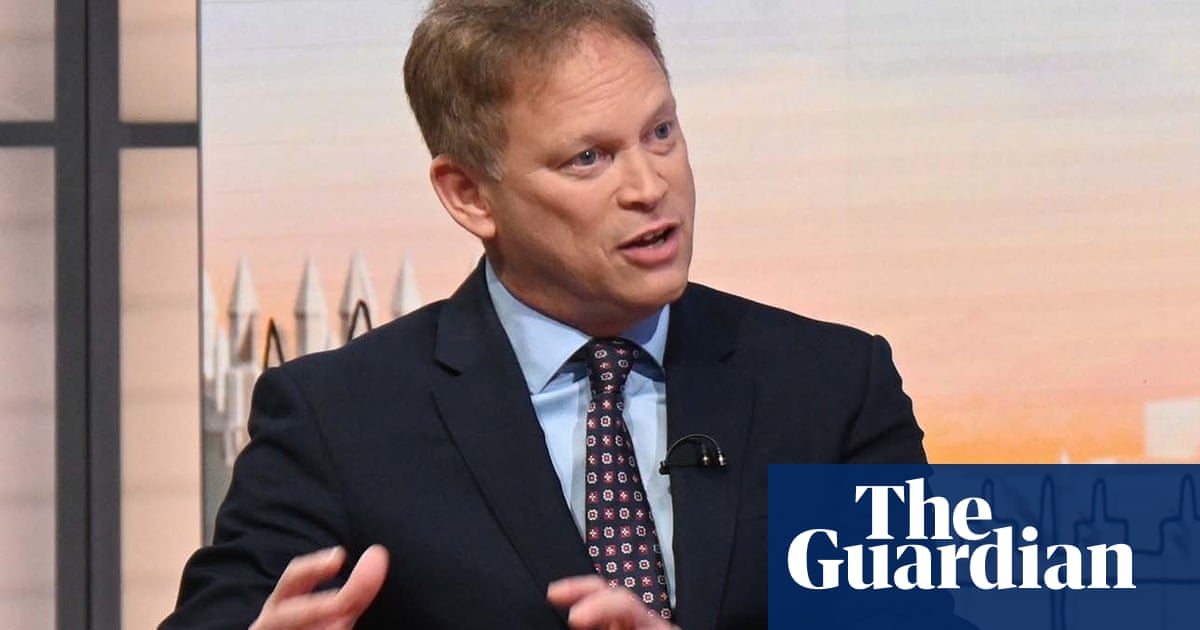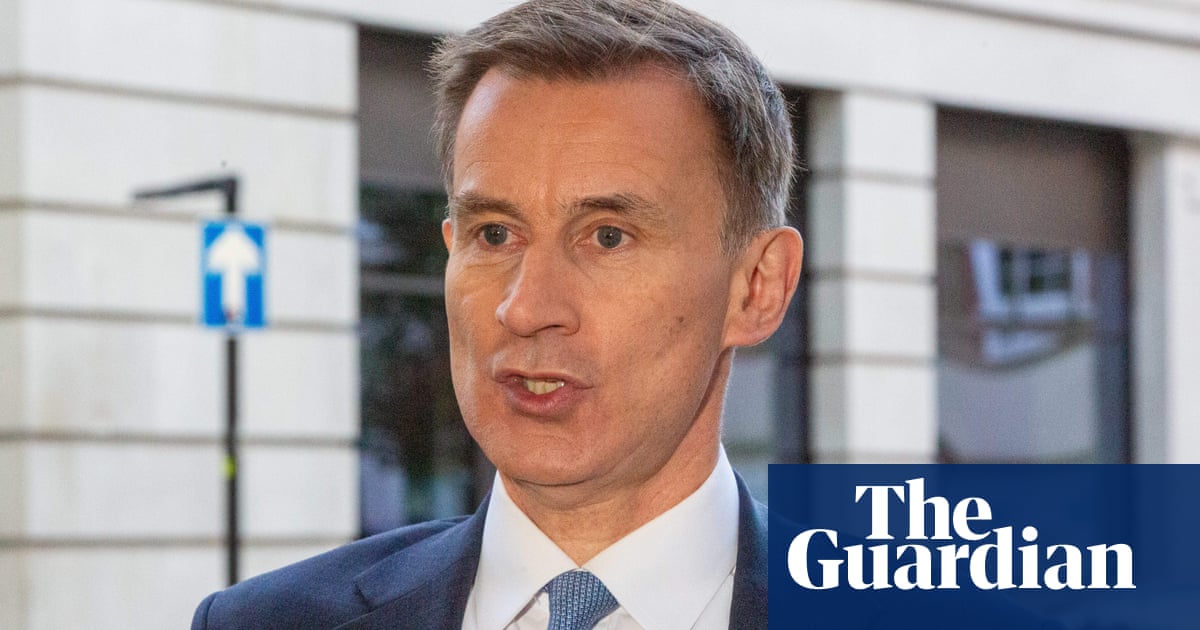
Jeremy Hunt and his team are considering not holding another tax-cutting autumn statement before the next election, amid uncertainty about the public finances.
The chancellor has already hinted that he plans to pledge further tax cuts – including another down payment on Rishi Sunak’s ambition to abolish national insurance – before a general election, which is expected to be held in the autumn. He also remains under pressure from the right of the party to lower taxes.
However, the Observer understands that Hunt may opt to throw further tax-cutting pledges into the next Tory manifesto, rather than holding a final so-called “fiscal event” that would require a detailed analysis of the public finances by the Office for Budget Responsibility (OBR).
It comes amid signs that the public finances could be in a worse position this autumn than had been anticipated. There has also been frustration among senior Tories that the billions spent on two cuts to employee national insurance contributions does not appear to have helped the party recover in the polls.
While a financial statement of some kind has to be made later this year, it only usually takes place in October or November by convention. A Treasury source said that no decisions had been made on an autumn statement, adding that whether or not one is held depended on when the prime minister decided to hold the next election. One figure said the window for holding such a statement stretched from September to December, which could shift it beyond an election.
The Treasury has to give the OBR 10 weeks’ notice before holding such an event, to allow it to issue an update on its impact on the public finances and to make new projections about the health of the economy.
Hunt has recently raised the possibility of further cuts to national insurance, saying he would make the move this autumn “if we can”. However, he has also pledged he would only make the move, costing about £9bn, if he could do it in a way that was fiscally responsible.
Another 2% cut promised in a manifesto would allow the party to boast that it would have halved national insurance from 12% to 6%, should it win the election. It would also mean another step towards Sunak’s stated ambition of abolishing national insurance altogether – a pledge that Labour has criticised as a £46bn unfunded policy.
However, official figures have suggested Hunt may have less scope for tax cuts in an autumn statement than thought just a few weeks ago. Recent figures from the Office for National Statistics showed the government borrowed more in the last financial year than expected. It borrowed £120.7bn in 2023-24, £6.6bn more than the OBR’s prediction. Tax receipts in March were about £5bn lower than the OBR had anticipated in the run-up to the last budget, as a result of weaker income tax and national insurance receipts.
Sunak and his chancellor have found themselves overseeing a tax burden that continues to grow, heading towards a postwar high, according to current projections. As a result, many economists have signalled that public services – especially those that are not protected from cuts – will have to be severely squeezed should further tax reductions be sanctioned.












